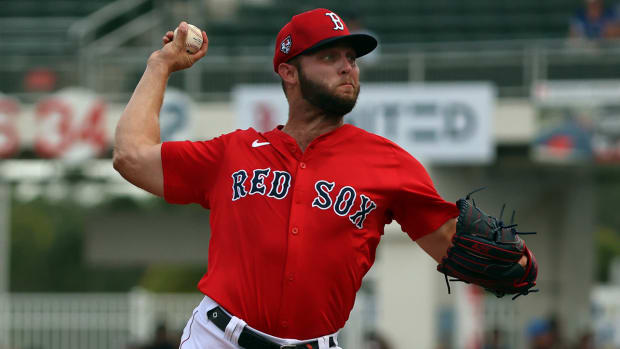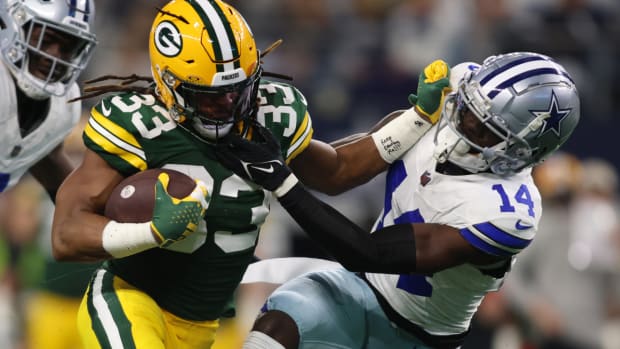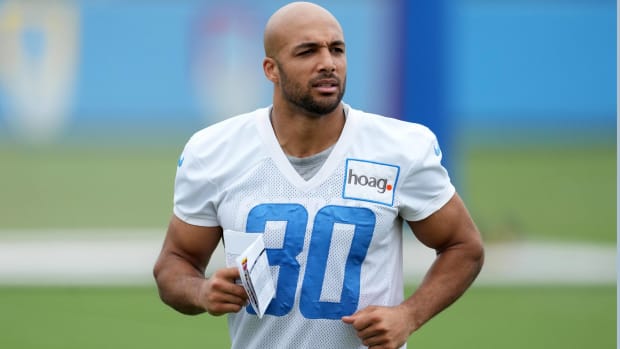Over or under your innings pace?
The subject of innings limits in roto leagues doesn't typically come up until late August or September. By then, many fantasy teams are approaching their cap on innings pitched and must adjust their use of pitchers accordingly.
But even before the season's denouement, many fantasy managers tend to glance here and there at their pitching staff's innings pace, and a projected innings shortfall or surplus tends to invoke some sort of psychological response. When Yahoo!, CBS Sports, or any other fantasy service tells you in screaming red letters that you're on pace for 200 innings short of the maximum, do you take it as some sort of dare by the powers that be to pick up Tim Wakefield to catch up?
Most fantasy managers will try to roughly stay on par with the projected limit. To some extent, this makes sense, preserving the option to use a team's best starters all the way till the end of the season, while at the same time, making sure to leverage the benefits of all the wins and strikeouts garnered when one hits maximum innings pitched.
On the other hand, no rules exist that state how exactly fantasy managers must appropriate their innings pitched throughout a season, and there may be advantages to asymmetrical apportionment.
Let's say you scoffed at all the conventional wisdom that said draft batters before pitchers, instead doing the opposite, and thus ended up with a super-strong rotation of pitching aces. Using all of these pitchers, plus any free agent acquisitions, plus any spot starters, would surely trigger red caution flags of a projected innings surplus. If the pitching is strong, does it really matter if you reach climax sooner than your league-mates?
Let's say your pitching is as weak as Jamie Moyer's fastball. We're talking a pitching staff that's anchored by the likes of (no offense) Carlos Zambrano and may include injured Daisuke Matsuzaka and injured John Lackey. Does it really make sense to trot out your league's draft rejects just to keep pace?
The advantages for being ahead of pace on innings:
1. The sooner a team reaches its maximum innings, the easier it may become to part with a fantasy ace like Johan Santana or Tim Lincecum in the interests of improving one's offense.
2. The sooner a team reaches its maximum innings, the easier it becomes to drop moderate-value players like middle relievers to add to hitting bench depth.
3. The avoidance of September pitcher's fatigue.
4. No need to worry about how your pitcher's real-life club's dashed playoff hopes will shake up your pitcher's psyche. Or how your pitcher's real-life manager will preserve your pitcher's arm after clinching the pennant. (Follow?)
The disadvantages for being ahead of pace on innings:
1. Use of roster spots on starters might mean lack of roster spots on closers. Additionally, it's hard to chase saves on an abbreviated schedule.
2. The more innings pitched, the harder it becomes to rescue ERA and WHIP should things go bad.
3. What if you can't trade Tim Lincecum or get fair value for him?
The advantages for being behind pace on innings:
1. Easier to spot the good match-ups with a few good weeks or months of data on the league's poorer offenses.
2. As teams approach their maximums, they might get more conservative on their use of pitchers. Some teams may drop decent starting pitchers to address other holes. Other teams may stop paying attention as they fall out of competition. In other words, the waiver wire options may be better as the season enters its late stages.
3. Relatedly, it typically becomes easier to trade for good starting pitchers -- and pay less -- as the season enters its late stages.
4. The less innings pitched, the easier it becomes to move ERA and WHIP.
The disadvantages for being behind pace:
1. You really sure you're going to hit your maximum?
All in all, we tend to see more of an advantage for being under count in the early going. Especially this year. Of course, hindsight is hindsight, but did you know that pitching has so far been terrible this year, compared to year's past? Batters are on their best pace since 2004.
If you haven't used a lot of pitching thus far, congratulations. You probably made the right move.






































